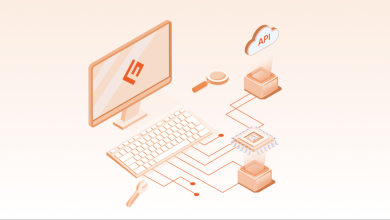
Artificial intelligence and automation aren’t just buzzwords. For small and medium-sized enterprises (SMEs), they’re now powerful enablers – tools that allow ambitious companies to punch above their weight, strengthen margins, and focus energy where it matters most: growth, innovation, and lasting customer relationships.
AI is democratising business performance. Technologies that once required enterprise-level budgets are now accessible to SMEs through cloud platforms and affordable SaaS models. As a result, smaller businesses can operate with the same analytical precision, productivity, and customer insight as global players – without the bureaucracy or overhead.
The Productivity Revolution
Every SME generates data daily – sales, customer interactions, operations, finance. Yet most of it lies dormant in spreadsheets, CRMs, or email threads. AI transforms that untapped data into actionable intelligence: buying patterns, inefficiencies, and early warning signals.
According to a 2024 study by the University of St Andrews, UK SMEs adopting AI report productivity increases ranging from 27% to 133%, depending on sector and adoption maturity (University of St Andrews, AI & Automation for UK SMEs, 2024). That level of impact is redefining competitiveness. A small firm implementing AI doesn’t just work faster; it works smarter, learning continuously from its own data to make better, faster decisions.
From Efficiency to Intelligence
AI adoption often starts with automation – removing repetitive, low-value tasks – but its real power lies in augmenting human intelligence.
- Professional services firms are automating proposal writing, reporting, and analytics, freeing consultants to focus on strategy.
- Retail and e-commerce brands use AI for personalised marketing, dynamic pricing, and stock optimisation.
- Construction and trades firms employ predictive scheduling and workforce optimisation to reduce delays and waste.
- Healthcare and veterinary practices leverage AI for faster note-taking, compliance, and predictive patient care.
- Manufacturers are achieving higher uptime through predictive maintenance and process automation.
Across every industry, AI is moving SMEs from reactive to predictive, empowering them to anticipate rather than respond.
Liberating Human Potential
The true ROI of AI isn’t measured in cost savings alone – it’s measured in creativity, innovation, and strategic focus.
Automating 10–20% of staff time through repetitive task elimination doesn’t just streamline operations; it gives people back the time and mental space to innovate. When humans and machines work together, productivity soars.
In practical terms, early adopters of AI and automation report 8-12% net margin gains through smarter decision-making, better time use, and improved conversion rates (Startups Magazine, The Economic Value of SME Automation, 2024).
For leaders constantly caught between managing operations and driving growth, AI acts as a force multiplier. Virtual assistants now handle reporting, summarise meetings, manage follow-ups, and even draft proposals, allowing decision-makers to spend more time leading and less time administering.
Data-Driven Decision Making
Data has always been the raw material of business success, but AI turns it into fuel.
Machine learning algorithms reveal insights that humans might miss: subtle shifts in customer behaviour, emerging profitability trends, or hidden inefficiencies.
AI-powered analytics help SMEs move from instinct to evidence-based strategy. Pricing engines now use real-time data to optimise margins dynamically, while predictive models identify which customers are most likely to churn and when to intervene.
For many small businesses, adopting AI means moving from “I think” to “I know” – and the financial results follow accordingly. Data-driven businesses typically see 5–15% higher conversion rates and faster revenue growth (Startups Magazine, 2024).
Cash Flow, Margins, and Financial Clarity
In a small business, cash isn’t just king – it’s oxygen.
AI-enabled accounting platforms forecast cash flow weeks in advance, flag potential shortfalls, and recommend payment adjustments. Predictive credit tools identify customers likely to pay late, enabling proactive management.
According to Startups Magazine (2024), if UK SMEs collectively harnessed AI and automation effectively, they could unlock £78 billion in additional annual economic value. That’s not theoretical efficiency. That’s real money, real jobs, and real resilience for the UK economy.
Enhancing the Customer Experience
Customer expectations have never been higher. Instant responses, personalised service, and consistent quality are now minimum standards.
AI enables SMEs to meet those standards at scale. Intelligent chatbots resolve up to 80% of customer queries instantly, while natural language models personalise emails and recommendations in real time.
Sentiment analysis monitors customer feedback across platforms, flagging issues before they become reputational crises. Over time, these systems learn from every interaction, improving precision and tone automatically.
The result? Faster service, happier customers, and stronger loyalty – delivered by technology, but powered by people.
Re-Engineering Operations
The operational backbone of small businesses is being rewired.
- Manufacturing firms now use predictive maintenance and quality-control algorithms to prevent breakdowns.
- Trades and construction companies forecast materials demand and schedule crews dynamically.
- Professional service firms deploy large language models (LLMs) to draft contracts, create proposals, and automate reports.
These tools don’t just save time – they build resilience. Businesses adopting AI-based process management are reducing downtime, increasing output, and meeting sustainability goals through smarter resource use.
Levelling the Playing Field
Historically, big companies won through scale – more people, more data, more capital. AI reverses that dynamic.
Today, an SME with the right digital toolkit can compete directly with global giants. Affordable automation and analytics platforms provide access to the same predictive insights and personalisation once reserved for enterprise budgets.
This levelling effect is transformative. A two-person marketing agency can deploy the same data-driven strategy as a multinational brand. A regional law firm can automate compliance with enterprise-grade accuracy. A veterinary practice can use AI to deliver predictive care once exclusive to hospitals.
AI is erasing the barriers between small and large. The winners of the next decade will not be the biggest – but the most adaptive.
The Adoption Imperative
Despite the opportunity, many SMEs hesitate. Concerns about cost, complexity, and data security remain common – but increasingly outdated.
Modern AI tools are modular, user-friendly, and built for non-technical users. Many integrate directly with familiar platforms like Xero, HubSpot, and Microsoft 365.
The best approach? Start small, prove ROI, and scale quickly. We are firmly of the belief that:
“The future isn’t coming – it’s already here. Competitors are already moving – and the No.1 imperative is making sure that SMEs don’t get left behind.”
Leadership in the Age of Intelligence
AI isn’t just transforming operations – it’s redefining leadership.
Modern SME leaders must learn to balance human judgment with machine intelligence. Strategy is shifting from static planning to continuous optimisation.
Effective leadership today means knowing how to interpret data, ask better questions, and create a culture of digital confidence. Forward-thinking leaders are prioritising upskilling and change readiness to ensure teams evolve with technology, not against it.
The goal isn’t to build AI-run companies – it’s to build AI-enabled ones: human at the core, technology at the edge.
Ethics, Trust, and Transparency
With AI’s power comes responsibility. SMEs must ensure transparency in how they use automation and data.
Customers will only trust AI-driven interactions if they’re clear, ethical, and secure. Building transparency into AI adoption – disclosing when automation is used and protecting personal data – is not just good practice; it’s good business.
Embedding ethical AI principles early also reduces risk and strengthens brand reputation. In a market where trust is a competitive asset, doing the right thing is a smart strategy.
The Road Ahead
AI will not replace entrepreneurs. But entrepreneurs who use AI will replace those who don’t.
Automation isn’t a threat; it’s a catalyst. It enables smaller firms to think bigger, act faster, and compete harder.
Start with the bottlenecks. Automate what drains your time and energy. Use the data you already have. Pilot, measure, and iterate.
Because in the years ahead, success won’t be defined by size – it will be defined by intelligence.
And for the modern SME, that intelligence is already within reach.



